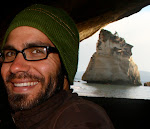Hugo Chavez is the Enemy of who exactly?
Many have claimed that Chavez, the leader of Venezuela (who recently helped the country do away with term limits that would enable him to remain president as long as he can be reelected) has been referred to by many as an enemy of the US. George W. Bush declared the Venezuelan democracy an "unchecked concentration of power in the executive," which, although incredibly ironic (the whole pot & kettle thing), makes a valid point in light of practices such as the term limit removal mentioned earlier. But some take their criticism a little further as good old Pat Robertson does here, "We have the ability to take him out, and I think the time has come that we exercise that ability," and "If he thinks we're trying to assassinate him, I think that we really ought to go ahead and do it... It's a whole lot cheaper than starting a war…and I don't think any oil shipments will stop". (Ah, nothing like well paid vocal Christians preaching self-interest, murder, and war to make the rest of us look good)
Though most aren't as extreme as W or Robertson, much of what I've seen having to do with Chavez is negative. Which begs the question, what is the other side of the story? Well, here it is. The below documentary The Revolution Will not be Televised set out to make a documentary of Chavez's life and accidentally captures a military coup launched by the several consevative businessmen and military officers (They admit to their involvement on TV!) Even if the politics of Latin America aren't something you're interested in, this is a fascinating look at how easy it is to manipulate the government and the media in a poor country (and may make you ask the same questions about our system here)
Enjoy!!!
The Descent
13 years ago

1 comment:
http://www.amazon.com/Magical-State-Nature-Modernity-Venezuela/dp/0226116026
the above link is to a book by Fernando Coronil, a professor at Michigan (i think). The book is an excellent read, albeit a bit tough at times, especially setting the primer for what your post is speaking to. And i love his imagery and how he positions the state within a magical, almost mythical realm. Very insightful. I also think he's written more on the current administration, but i have yet to find it -- maybe google scholar has it (that's my answer to everything).
anecdotally speaking, i saw give a talk at CAL and, again, he is brilliant. I think he's much informed by the notion that not only is a state's identity a created thing, but that the countries resources have much to do with said creation; it's seen as informing and sculpting individual identity, as well.
the book is a must read for those interested in Latin American history and theory.
Post a Comment